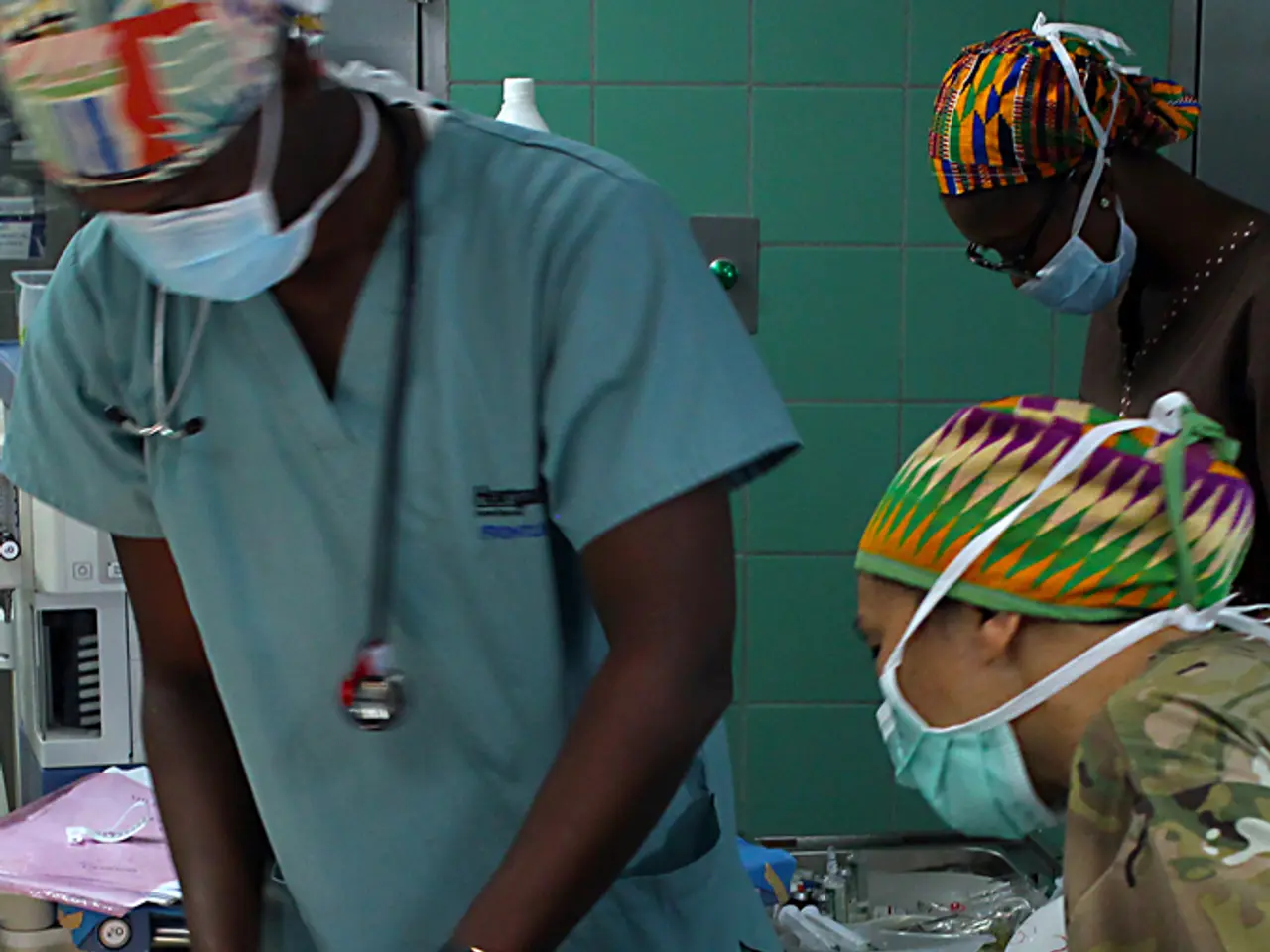Symptoms and indicators of autism in a young child aged 3
Autism, a neurodevelopmental disorder, can present unique challenges for children as young as three years old. This condition affects social interaction, communication, and behaviour, often leading to repetitive actions and sensory sensitivities.
Three-year-old autistic children may exhibit a range of signs and symptoms that differ from their neurotypical peers. Repetitive behaviours such as hand-flapping, rocking, spinning, or swaying for sensory input, obsessive interests in specific toys or activities, and strict adherence to play routines are common.
Social interaction may be less frequent and less diverse, with reduced eye contact, reduced facial expressions, and difficulty engaging in typical social play. Sensory sensitivities, such as being overly sensitive to sounds or textures, or fascination with certain sensory stimuli like lights or movements, are also common.
As children with autism grow older, their symptoms may evolve. Older autistic children often show more developed but still atypical communication, such as repetitive speech (echolalia) or intense focus on specific topics. Restricted interests may become more specific and knowledge-based, and social challenges may become more nuanced as social expectations increase with age.
It is important to note that autism in girls may present differently from autism in boys. Girls may be better able to "mask" their social challenges, making diagnosis more challenging. However, early recognition of signs can facilitate timely evaluation and intervention.
Parents and caregivers should speak to a doctor if they think that they are noticing signs of autism. A professional diagnosis is essential for identifying autism and for accessing the appropriate support and resources.
Early intervention is key for improving outcomes for autistic children. A variety of therapies are available for autistic children and their families, designed to help manage symptoms and support overall development.
It is crucial to remember that there is no "cure" for autism, but with the right support, people with autism can lead happy, healthy lives. Doctors and therapists can help people with autism manage their symptoms and navigate the challenges they may face.
In conclusion, autistic 3-year-olds often display early challenges in social communication and play, alongside characteristic repetitive behaviours and sensory sensitivities. These behaviours may be persistent and can also be accompanied by resistance to changes in routines or surroundings. Early recognition of these signs can facilitate timely evaluation and intervention, setting children on a path towards a brighter future.
- Recognizing signs of autism in a child as young as three years old is essential, as this neurodevelopmental disorder can affect social interaction, communication, and behavior.
- Repetitive actions like hand-flapping, rocking, spinning, or swaying could be indicators of autism in a child, along with obsessive interests in specific toys or activities.
- Caregivers should pay attention to reduced eye contact, facial expressions, and difficulties engaging in typical social play, which are also signs of autism.
- Sensory sensitivities, such as overreaction to sounds or textures, or fascination with specific stimuli like lights or movements, are common among autistic children.
- As a child with autism grows older, their symptoms may evolve, leading to more developed but still atypical communication, such as repetitive speech or intense focus on specific topics.
- A professional diagnosis is imperative for identifying autism and accessing the appropriate support and resources for the child and their family.
- Early intervention through various therapies can help manage symptoms and support overall development for autistic children, leading to improved outcomes.
- It's crucial to remember that there is no cure for autism, but with the right support, people with autism can lead happy, healthy lives, managing their symptoms and navigating challenges effectively.
- In addition to autism, conditions like psoriasis, migraine, HIV, neurological disorders, chronic diseases like cancer, mental health issues, and skin care concerns, among others, require medical attention and care.
- Mental health, child and adolescent mental health, personal growth, education and self-development, health and wellness, fitness and exercise, nutrition, and skin care are all important aspects of a holistic approach to health.
- Pfizer, like many other pharmaceutical companies, is involved in the research and development of treatments for various medical conditions, including autism, chronic diseases, and skin care issues, contributing to predictive science and the improvement of health and wellness.




